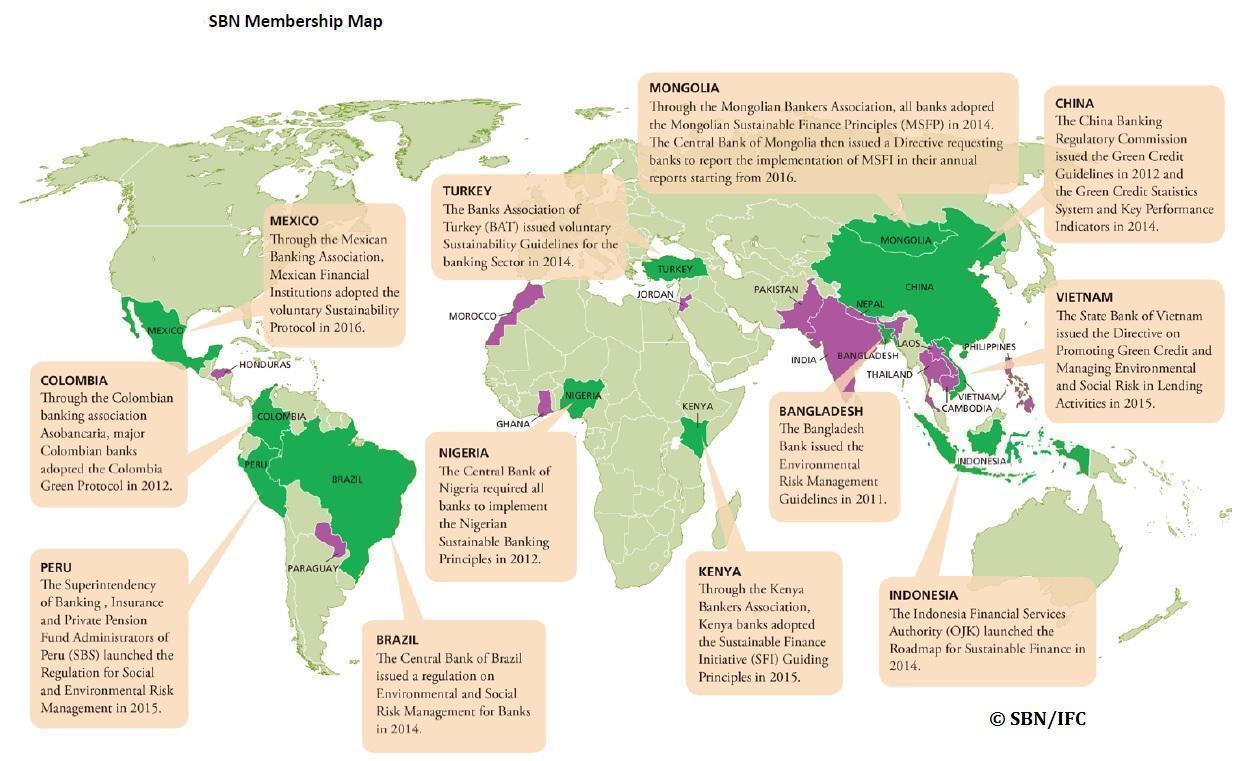31 January 2017 2 menit
Regulatory approaches to sustainability in commercial banking

By: Julian Müller, Profundo (Amsterdam).
The field of sustainable banking is dominated by voluntary frameworks for the incorporation of sustainability criteria in banking operations, but binding regulation is necessary to give some teeth to these initiatives. Since around 2010, some countries have pioneered regulatory approaches. Bangladesh, Brazil and China are the most advanced, with Bangladesh and China leading the way by not just requiring the incorporation of sustainability criteria, but by also creating tools for monitoring the success of these initiatives, for example standardised formats that banks must use when reporting to supervisory authorities. Bangladesh employs the broadest range of regulatory instruments, from banking supervision to monetary policy, and from ‘green’ lending incentives to mandatory quotas. Moreover, it requires standardised reporting on environmental risk management from regulated banks and publishes this information on a quarterly basis, allowing the general public and civil society to play a role in progress monitoring.
These measures show what can be done to stimulate banks to increase the supply of financing to sustainable businesses and decrease financing to unsustainable ones. However, more has to happen on the demand side too. Governments must use appropriate economic, fiscal and environmental policy measures, like tax incentives, subsidies or fines, to encourage non-financial businesses to invest more sustainably. This would boost the take-up of sustainable financing offered by banks.
Together with the Ministry for Environment and Forestry, OJK, the Indonesian Financial Services Authority, which is also in charge of banking regulation, launched the 2014 “Roadmap for Sustainable Finance in Indonesia”, a workplan for achieving a transition to a sustainable financial sector in Indonesia by 2024. It states that financial institutions under the OJK’s authority “are expected to have integrated environmental and social aspects in its risk management and corporate governance, and provide regular progress reports on sustainable finance implementation to the public”[1]. This initiative deserves more support from all affected and interested parties, including the banking industry itself, if it is to make good progress. The OJK should be encouraged to learn from pioneers like Bangladesh, while the Indonesian government should flank and support these supply-side measures with economic and environmental policies that would also change the demand for financing.
